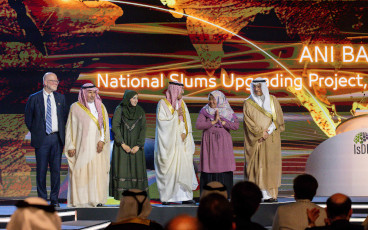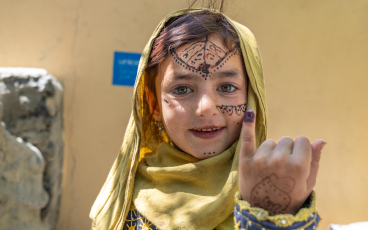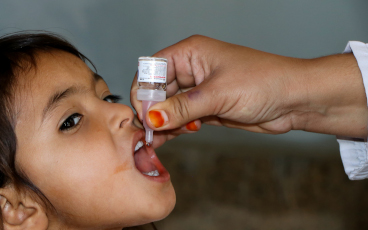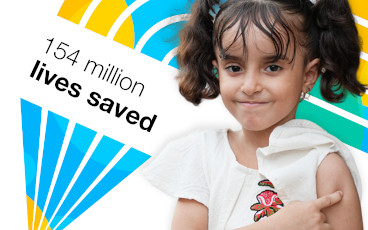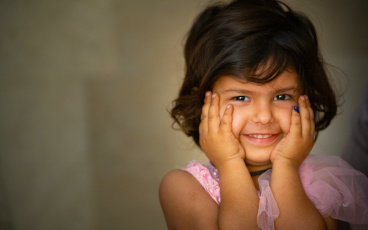“To convince one family to be vaccinated is a huge victory”
Hira’s story epitomizes the heroic contribution of women polio workers in Afghanistan who continue building trust in vaccines among parents and caregivers in the quest to immunize every last child and end polio.
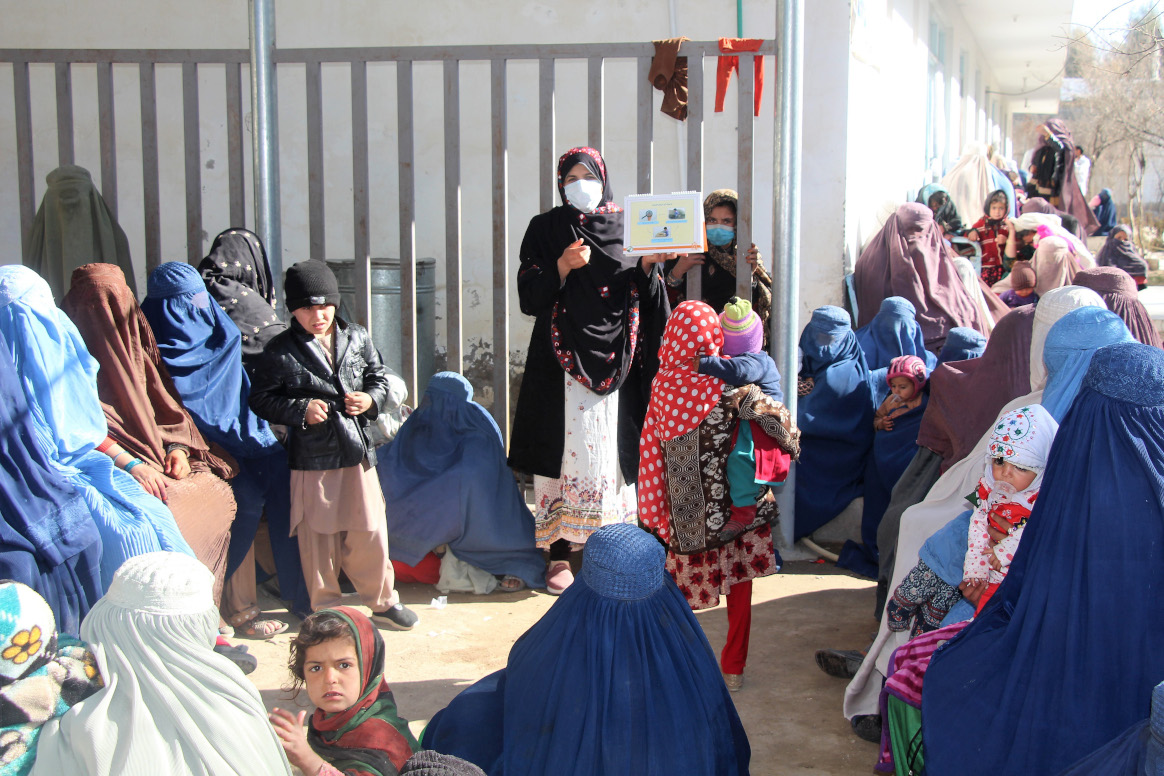
Anisa’s story epitomizes the heroic contribution of women polio workers in Afghanistan who continue building trust in vaccines among parents and caregivers in the quest to immunize every last child and end polio.
The yellow taxi drives slowly on an unpaved Afghan road. It has rained heavily turning the detritus on the ground into a muddy quagmire, and the car labours in its efforts not to get stuck.
Stopping near a house, a young woman in a black scarf and traditional dress climbs out of the car. This woman is Anisa, a UNICEF consultant for the polio programme. Today she is visiting parents who are refusing to let their children be vaccinated, to explain why the two drops of oral polio vaccine (OPV) are critical for their health and wellbeing.
We enter one of the houses and meet an elderly woman.
“I am not vaccinating my grandchildren!” The woman sounds resolute, but we stay anyway. “Can we talk about something else?” Anisa asks calmly. Shortly thereafter, we’re drinking tea and praising the mild weather. The grandmother tells us her left leg was almost fully paralyzed half a year ago and she can’t walk normally.
“This is horrible. You should go to the clinic. I can recommend a good doctor for you. And do you also know that children who are not immunized can also be paralysed because of polio?” Anisa starts getting to the point of our visit. “You have two wonderful granddaughters and it’s easy to protect them.”
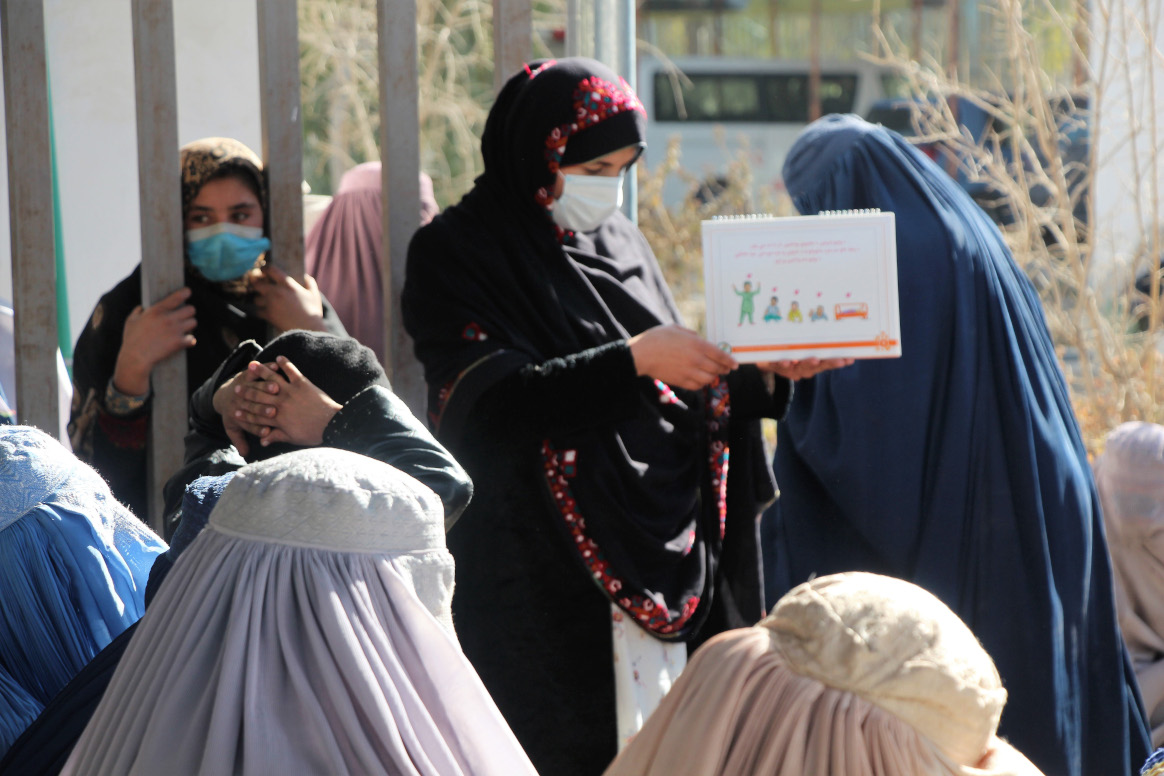
The grandmother doesn’t seem convinced but asks questions about the rumours around the vaccine. Anisa explains that OPV is safe, halal for Muslims, and it is the only way to protect children from getting polio. One hour later, the grandmother nods – she finally agreed to vaccinate. It is hard to say what was the turning point that convinced her. Maybe the photos of paralyzed polio survivors that Anisa showed her on her phone; maybe information that polio vaccination is required for Hajj and Umrah (religious pilgrimages to Mecca which must be done at least once in lifetime by all Muslims); or simply the fact that Anisa vaccinated her own two children, and they are safe and well. The fact that the grandmother finally agreed to vaccination feels like a big victory – but it’s just a small step in the battle against polio.
Anisa has been working in the health sector for almost 10 years – as a midwife, female mobiliser vaccinator, nutrition officer and a clinical mentor. She first started to support the polio programme as a Provincial Communication Officer (PCO), supervising over a hundred communication cluster supervisors.
During the national immunization campaigns, even during the COVID-19 pandemic, Anisa supports the teams by conducting information sessions for refusal families and arranging discussion sessions for community groups. She also holds awareness raising sessions on how to prevent the spread of COVID-19.
“After my first day working with refusal families, I wanted to leave the job. I didn’t convince anyone. But then I managed to convince one family with five children, who have never been vaccinated and it felt like such a victory that I decided to stay,” remembers Anisa. “Now I know how to approach different people; I understand what type of information is important to persuade them to make the right decision.”



